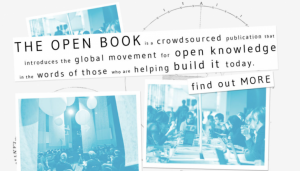
„Knowledge is power“ is the credo of enlightened modernism. However, Michel Foucault proclaims that whoever is in power determines which knowledge prevails in society, and ultimately this is the only knowledge that we have access to. It is certain that knowledge and power are closely interrelated, and that power relations in a society heavily depend on who has access to which knowledge, and on who defines which knowledge is „right“. New media technologies, however, offer new possibilities, not only to make information accessible to the public at large, but also to allow many people to participate in the generation of knowledge, for example through Wikipedia.
Responsible, independent media and an education system that does not breed people as consumers but teaches them to evaluate information and to participate responsibly in the provision of knowledge, are essential for democracy. In politics secrecy is becoming more difficult because responsible citizens want to know what their governments are doing. Disclosure? – Provided by Wikileaks, if necessary. Since Edward Snowden's leaks, intelligence agencies have to publicly justify themselves as well: Should they be abolished, or incorporated as “Open Source Intelligence Agencies” in our interaction-driven information society?
Robert David Steele (us) – via Videostream . Birgitta Jónsdóttir (is) . Volker Ralf Grassmuck (de) . Ksenia Ermoshina (ru) . Claudia Garád (at) . Moderation: Thomas Lohninger (Open Knowledge Foundation) #E13knowledge



